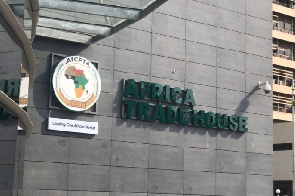Energy experts at the Africa Energy Conference 2022 have advised the African Continent Free Trade Area (AfCFTA) members to come together in order to create a competitive front in nuclear power, which has become the new energy wave for industrialisation. Speaking on the theme ‘Sustainability and the Role of Nuclear Power in Enabling Africa’s Energy Ambitions’, the Director of Volta River Authority (VRA) Training School, Sophia Abena Tijani, said that African countries through AfCFTA and economic blocs like ECOWAS should unite and bring resources together to develop the continent rather than solely depending on the Western world. “If we always go begging from the foreign donors, then obviously they will dictate to us because those funding agencies are also into business and do not give free money,” Sophia Abena Tijani stated. She added that once Africa is committed to having a united front and commanding stance on what the continent wants and how its resources should be used, the funding agencies cannot dictate to the continent. Energy expert Ing. Charles K. Boakye also cautioned that Africa needs to be careful in always soliciting for funds from the Western world, following the recent global energy crisis. He admitted that Ghana cannot entirely scrap international loans and grants support to develop the energy sector; however, it can be reduced by first assessing the resources which can be locally generated to support the project. “Ghana needs to strategise and implement a comprehensive plan to boost the manufacturing capacity of industries in order to internally supply material for the nuclear energy project, rather than looking to foreign donors to fund everything – for which we may not even get the revenue to repay,” he said. The energy experts and industry players mentioned that African countries need to take leadership of their own affairs, and make progress within the AfCFTA environment to achieve sustainable development in the energy sector. With so much pressure on electricity and the world’s aim to gear toward sustainable energy, there have been global discussions on considering nuclear power as an alternative. The concern for sustainability and climate change has also sprung up in many environmental and developmental discussions, and nuclear power has become a resilient, secure and sustainable option for Africa’s energy ambitions. Ghana has relied on hydro-power for many years as the major source of electricity for both domestic and industrial purposes. However, in the past decade reports have shown that the country’s electricity demand has been estimated to be growing at a higher rate of 7 percent annually as a result of increasing population, industrialisation and expansion of electricity supply to rural communities. Even though there are other sources of electricity like wind and solar, they cannot be produced on a larger scale to supply sustainable energy to the growing population and industries in the country. Nuclear energy can contribute immensely to development of the country as it provides eco-friendly and clean energy, improved agriculture, advanced medical treatment and clean water.
Business News of Sunday, 9 October 2022
Source: thebftonline.com













